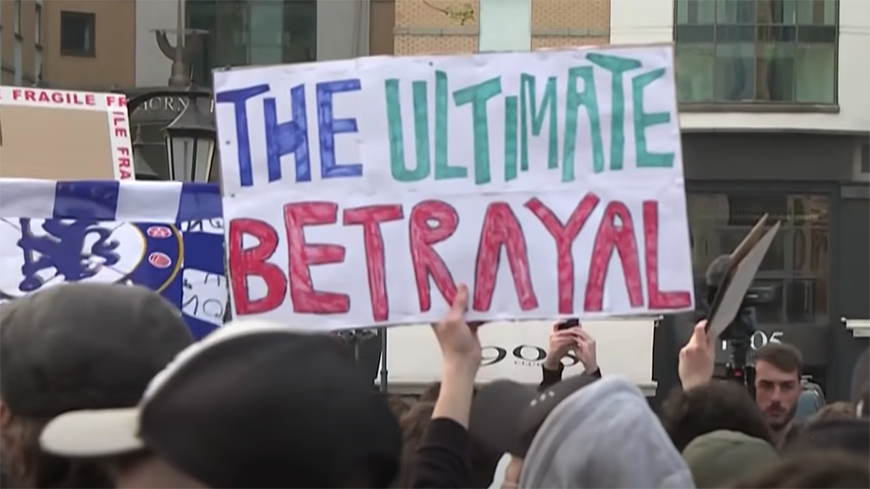As a soccer fan, it’s been a wild week witnessing the rise and fall of the European Super League, a proposed league that would have marked the biggest change for professional soccer in decades. Although the proposal is stalled as of Thursday, had the change gone through it would have marked a huge change to the Champions League, World Cup and how we watch overseas soccer.
Last week, 12 of the biggest teams across leagues announced their plans for the European Super League, a breakaway league of its own. The plan was immediately criticized as being a divisive ploy meant to make more money without thinking of the fans.
The teams included Manchester City and Chelsea of the Premier League, Real Madrid and Barcelona of La Liga, Juventus and AC Milan of Serie A, and more. Some big-name teams opted out of the new opportunity, for various reasons.
Bayern Munich, for example, follows a “50+1” rule, a system that ensures that fans will always own the majority of their voting rights, and investors can never own more than 49 percent of a club. Because of this structure, they’re opposing the European Super League.
This system is a great example of football being for the fans, and I wish all clubs had a similar system that gave fans control over decisions that affect them as well. Given the backlash toward the Super League, I wish that fans were able to have an impact on the decision before it was announced.
If other teams’ fans had a say, I bet the ESL wouldn’t have even made it as far as it did. When it was announced, some fans expressed opposition, saying it was a greedy cash grab and a move that was made without them in mind. Supporters of Chelsea, Spurs, and Liverpool all held protests outside the stadiums, waving banners and flags to show their opposition to the move. And I don’t blame them.
[70-year-old rappers Pete & Bas prove it’s never too late to pursue a passion]
The European Super League announcement said the founding clubs would have received $4.1 billion in investment, despite their existing total valuation of $34.4 billion dollars across all 12 founding clubs. The move would have put the world’s richest clubs into a box while funneling money in, most likely starving the smaller clubs in the process.
In my eyes, the smaller clubs are what keep the leagues interesting. Take the Premier League for example. Seeing Manchester United at the top of the table is expected, but watching West Ham’s recent run into the top four is what makes the league so great; the idea that smaller clubs can go up against the powerhouses and put up a fight. It’s more exciting for fans, too.
Executives and officials were also quick to object to plans for the new league, calling the move “cynical.” Objectors included UK Prime Minister Boris Johnson. FIFA announced that Super League participants would be barred from representing their countries in their national teams, a huge blow to the ESL’s allure.
Most players’ dream is to take their country to the World Cup final, a symbol of pride and honor not just for the player but for the nation they represent. Given the ban, it seems like no player would be comfortable forfeiting a national team position to take part in this new league.
[ Jeffree Star’s car accident and my moral dilemma]
According to Forbes, the winner of the Super League would have made $470 million, more than three times the UEFA league payout. The ESL and interested teams tried to argue that this potential increase in revenue would offset losses from the pandemic. I don’t fully believe that. Yes, clubs are probably scrambling to make up lost ticket sales, but this move still seems more like a long term way to drain fans’ money than anything else.
Given all the backlash, it isn’t surprising that clubs stepped away from the proposal. Plans are now on hold, and all six Premier League participants officially withdrew from the project.
Some teams’ owners believe there’s still a future for the ESL, but I’m not so sure. I think a potential compromise could be a Super League that occurs every couple of years, similar to the World Cup and Olympics. Such a situation would increase revenue and make for a good watch for fans, while also preserving the excitement and rarity of watching the big matchups.
The European Super League is not coming anytime soon, but it’s interesting to think about how it would’ve changed the soccer scene had it come to fruition. Would it have given us more high-caliber games? Or would it have just been another example of prioritizing capitalism over all else?



